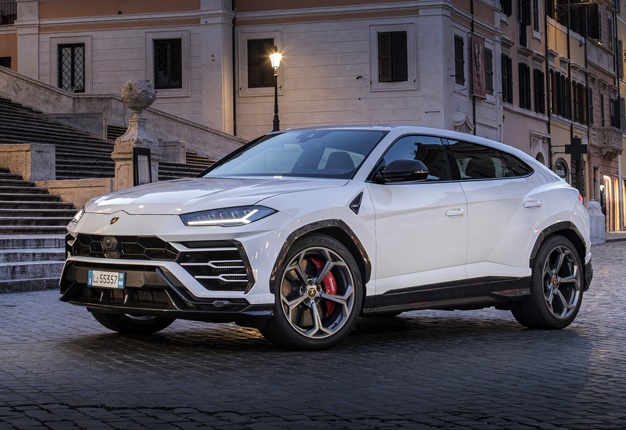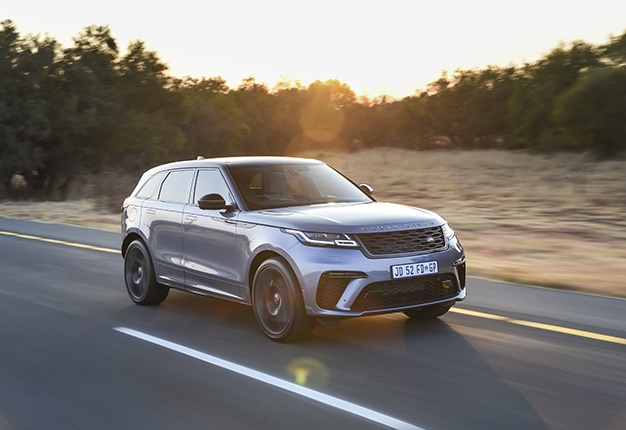
Earlier in February, Wheels24 reported that a stolen white Lamborghini Urus from Bedfordview, with a R200 000 reward for any information leading to the safe return of the vehicle, was spotted in Mozambique.
Anton Koen from No Jack vehicle tracking says owners need to be vigilant because this syndicate has implemented a very smart modus operandi: "These guys make themselves familiar with the dealerships, and the staff who work there. They obtain customer information, possibly by access to Natis (National traffic information system), or keeping a watch on customers who visit showroom floors."
Various automakers have been warning customers of this scam since late last year and several have issued warnings as incidents became more frequent.
However, these intelligent fraudsters are not just targeting Lamborghini owners, they are after all luxury vehicles such as Range Rovers, Porsches, BMWs, Mercedes-Benz', and even Toyota Hilux bakkies.
Wheels24's Janine Van der Post says: "Luxury vehicle owners need to be extremely vigilant. Make sure you call the dealership and make absolutely sure there is a recall, however, most times automakers will send out mass communication or notify owners in a more official manner. And, just to be safe, call another dealership even if it's in another province to confirm if there is a recall or fault on the models."
READ | Stolen SA Lamborghini Urus with R200 000 reward spotted in Mozambique
Now the Insurance Crime Bureau (ICB) recently issued a vehicle recall scam alert following a significant increase in the number of cases.
"Criminals execute a recall scam by contacting unsuspecting vehicle owners and posing as officials representing a car manufacturer - convincing the owners that their vehicle is part of a batch being recalled due to serious malfunctions,” says Maanda Tshifularo, Head of Dialdirect Insurance. "With the promise of a repaired or replacement vehicle, many people buy into this scam and end up losing tens, or even hundreds of thousands of rand."
Garth de Klerk, CEO of the ICB, says that initial contact is normally made telephonically, where a criminal posing as an official informs victims that their vehicle is being recalled.
"This is often followed up with a spoof e-mail, with criminals going to great lengths to make their communication seem official. They convince vehicle owners that they shouldn’t drive their vehicle under any circumstances and make arrangements to collect it – most often using a tow truck,” says de Klerk.
A couple of days later, the owner would typically phone the dealership for an update, only to discover that the vehicle has in fact been stolen.
These crimes, where millions have been lost, are likely driven by single or multiple syndicates. The end market of these syndicates varies, with some of the vehicles cloned and re-sold locally and others, often high-end vehicles, taken across the border, or shipped to other countries, and sold there.
De Klerk says that it’s surprisingly easy for criminals to get profiling details of an individual and the car they drive, due to people often sharing too much information through social media platforms and telephonically – mostly through fake “market research calls”.
Image: Motorpress
Tips to avoid becoming a victim:
• Limit the amount of personal information you share on social media and telephonically. Criminals use this to build a detailed profile of their victims.
• Be vigilant and maintain a healthy sense of scepticism when talking to strangers. Make every effort to verify that they are indeed who they say they are, and that they are an employee of the company they claim to represent.
• Check with the manufacturer and/or dealership directly to verify that the recall is legitimate. Don’t trust contact details provided by the person who called you.
• Report any suspicious calls to the authorities, the manufacturer and/or the dealership.
"It’s wise to remember that there could always be a scamster somewhere trying to separate you from your vehicle or hard-earned money. Always be alert, don’t trust too easily and do your homework, especially when large amounts of money or valuable possessions are concerned," says Tshifularo.




 Publications
Publications
 Partners
Partners












